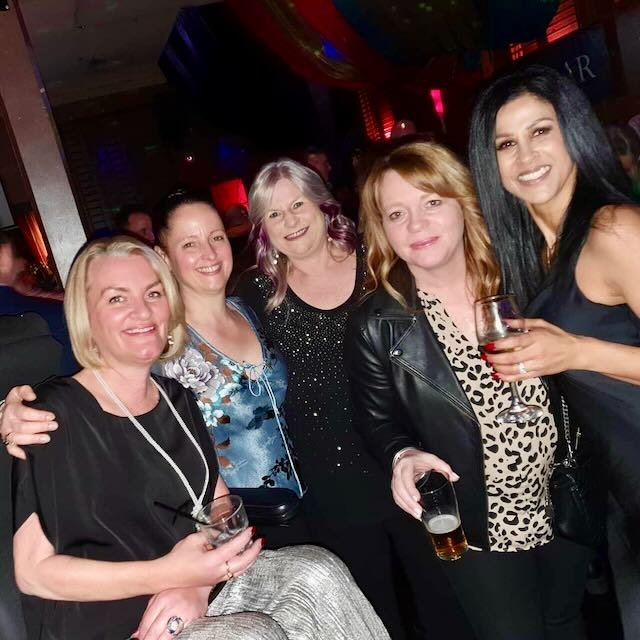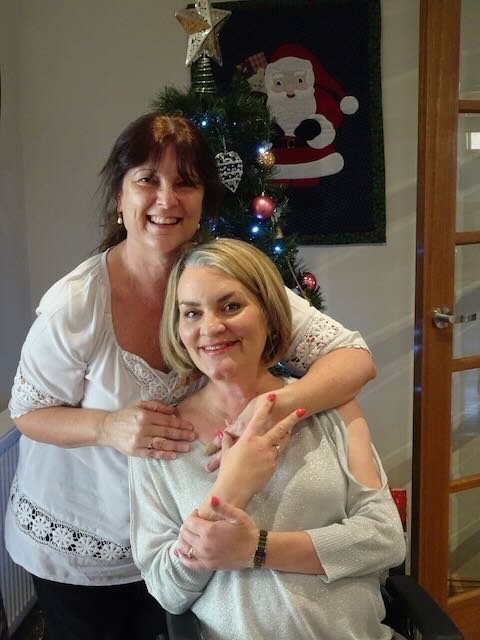Five Tips for Being an Empowering Disabled Friend
Since I have become increasingly disabled, I have had many occasions to consider and appreciate the people around me, and how each deal with the less mobile, equipment-bearing, limited-venue-attending me. Do they treat me differently at all? Do I treat myself differently? Is there a sense of obligation, pity, or discomfort, or do I perceive that there is? Has the quality of our friendship changed? Do we each put as much effort into maintaining our relationship? Although the principles are similar to any great friendship, they can take a bit more work depending on your disability journey.
I recently wrote Five Tips for Being a Stellar Friend to Your Disabled Someone. As any relationship is a 2-way interaction it is appropriate to reflect on nuances of friendship from a disabled person. Because there can be differences, subtle and more obvious. Brought on by cultural ableist attitudes and general ignorance of what disability means - especially as there so many disabilities.
There is no doubt that factors such as structural accessibility (transport, venues, and accommodation), fatigue, persistent pain, medical appointments and very often the financial strain that is exacerbated for many disabled people can impact the way we friend. And for all those reasons and more, we should never feel pressure to give in a way that is not viable or that impacts our reserves detrimentally.
I obviously can’t speak for every relationship; however, I can share my experiences with my friendship’s pre-disability and post-disability. Because there is no doubt that the way I friend can be quite different to what it used to be. For instance, hosting now involves more BYO food from my guests. Where I used to physically prepare for social events, I now advise and manage. I can no longer visit my friends at their homes and miss out on other social activities simply due to inaccessible designs.
Here are 5 tenets of relationship building that I try to heed, which I feel have enabled the disabled me to maintain and grow the valued friendships that I have.
1. Be honest. Many people still feel uncomfortable around any form of disability so depending on where you are in your disability progression and the type of friendship you have, being open about what’s going on for you including your needs and expectations can be extremely helpful and empowering for you both. As with all human interactions, communication is key. This could be as simple as explaining that you need a door opened for you or that you can't be away from the house for an extended period.
It may also be cathartic for you to share your emotional journey. As with any life-altering event it can feel like a lonely experience and your friend will most likely appreciate your sharing as it helps them make sense of your experiences and builds an empathetic ally for you to rely on.
2. Be interested: You may not be able to experience your life as you would like to, however, that shouldn’t impede your interest in your friend’s life. A quality friendship involves sharing and listening from both sides. Taking a genuine interest in your friend’s life not only supports them but gives us a break from the necessary self-focussing required in dealing with a disability such as pain, and fatigue, as well as the burdens of medical, social, and structural interactions.
3. Listen: Listen, really listen, to your friends’ stories without judgement, comparison or needing to solve. Make it OK for your non-disabled friends to complain. There’s a misconception (and arguably ableist thinking) that their problems aren’t as significant. Everyone’s experiences are as unique as our individual personalities and circumstances – and all our challenges are equally valid. It can take huge amounts of thoughtfulness on our part to suspend that harmful bitterness-beast or envy-monster reminding us of what it is to live untethered in a world built for non-disabilities, but your friendships will benefit from resisting it.
Conversely, if you have a friend that goes out of their way to better you in the ‘whose life is harder’ stakes, or just brings you down with their constant negativity, listen to yourself - this type of friend might not be your type of friend after all. You may need a perfectly reasonable temporary or permanent sanity break.
4. Acceptance and appreciation: Not everyone is mentally or physically equipped to handle non-normative situations such as the challenges and restrictions that often accompany the day-to-day life of a disabled person. This can place significant strain on a relationship. Those of us who are disabled can, at times, feel lonely as we accept, navigate, and find our space in a world that is often actively set up against us. Our friends may need time and help from us to better understand our situation.
When we share our lives with those we love, we simultaneously increase the pool of advocates on a societal level and deepen our friendships. In this we exhibit leadership qualities without realising.
Of course, some people may not be as empathetic or willing to adapt to the changes required to maintain the relationship so it’s also OK for you to accept that and move on, to concentrate on what and who brings you joy.
5. Value yourself: You are uniquely you in all your remarkable, wonderful, talented, idiosyncratic qualities. Disability can feel as though it’s stealing your pre-conceived sense of self-worth, but it can’t do that while you resist. Show your fighting spirit, and be strong enough to ask for help or to request changes when you need to.
Maintain your power in your relationships - don't lose those qualities that you are loved for. Continue being you.
One thing that I’m still reconciling is to never feel that I, as a disabled person, am a burden. Yet the more I read about disability and society, the more I share with my friends and family and community, and the more disabled people I meet I know that disability cannot diminish our worth. In fact, we can empower others to understand disability and in turn, empower ourselves.
Finally, surround yourself with love and kindness – you deserve it. Be that love and kindness to others. We all deserve it.





